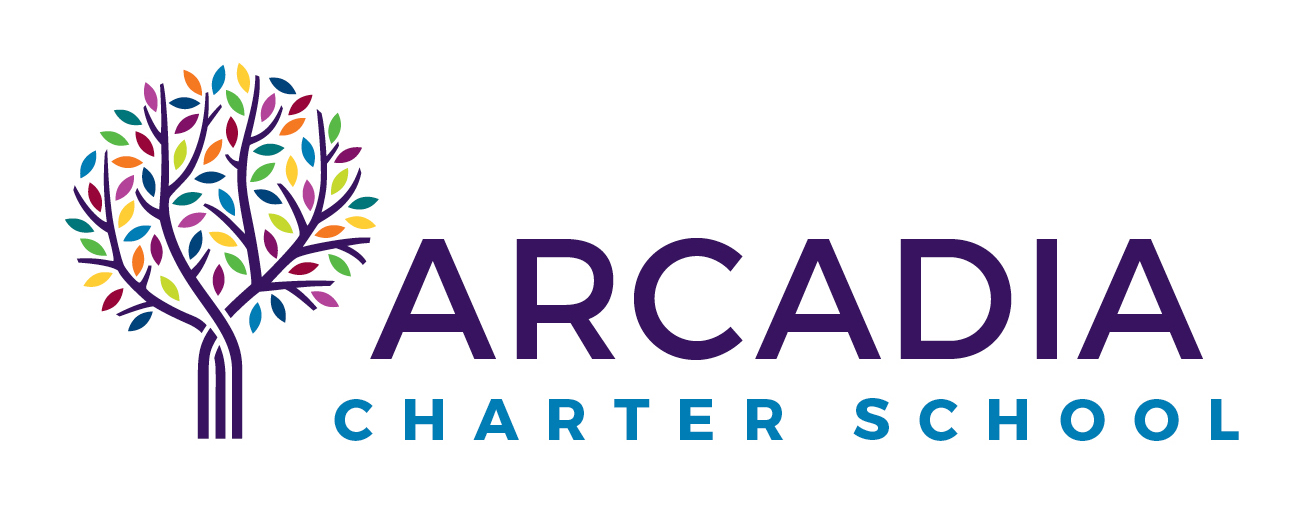Arcadia This Week 1/18/2021
Hello, Arcadia families,
Here is what’s up at Arcadia this week!
The announcement yesterday was related to the rollout of vaccines for educators--there was uncertainty as to the content of what that message would be for schools, hence the delay. Though this announcement did not impact our schedule, the current case rate is high enough that we will not be returning to hybrid on February 1st. We are now planning for a return on February 22nd. Please see below for more information.
Monday, 1/18: No School, Dr. Martin Luther King, Jr. Day
Tuesday, 1/19: Day 5
Wednesday, 1/20: Day 6
Thursday, 1/21: Day 1
Friday, 1/22: Day 2--End of the 2nd Quarter
Schedule for Third Quarter
With the case rate still over 60, we have decided to postpone our return to the hybrid model. Here is our current plan for the upcoming quarter.
January 25-28: Third Quarter begins in Distance Learning
January 29: No School (this was already on the calendar)
February 1-5: Distance Learning
February 8-12: Distance Learning
February 15-17: No School--planning days for the shift to hybrid
February 18-19: Asynchronous Learning; Spring Conferences
February 22-25: Hybrid Resumes--HS Week
February 26: Catch-up Day (all students; no forward movement in classes, teachers available to help students get caught up)
March 1-5: MS Week
March 8-11: HS Week
March 12: Asynchronous Learning AND Picture Day!
March 15-19: MS Week
March 19: End of Third Quarter
Announcements
Elective sign-up for next quarter is this week! Here are the options:
HS Electives
Art: Art, Artist and Antiquity
Theater: Performing Arts (Monologues and Solo Scenes)
Social Studies: Civil Rights
English Language Arts: A Raisin in the Sun; Advanced Composition; ACT Prep
Science: Microbiology
HS Physical Education
MS Electives
MS Physical Education
MS Activities (Not Study Hall)
MS World Languages
MS Theater
MS Creative Writing
Picture Day Rescheduled for March 12th
Picture day has been rescheduled! It will take place March 12th from 8:30am to 2:30pm. We’re doing a signup just to make sure we spread ourselves out, but pictures typically go quite fast, and we will have spots marked on the floor to ensure appropriate distancing. Sign up for an appointment time here: Picture Day Sign Up
Attendance Form
Please report attendance-related information (appointments, illness) through our website, even during distance learning! Go to “Current Families” and then “ Report an Absence.” You can fill out as much as is relevant. If your child is ill, please make sure to report symptoms, as we are required to track a lot of information on illness this year! If you’d rather just save a link to the form somewhere accessible to you, here is a link to the form.
Mission Spotlight
This week, I’m including the final section of the article, “Progressive Education: Why It’s Hard to Beat, but Also Hard to Find,” by Alfie Kohn as part of our effort to continually move the school toward our mission.
Why It’s Rare
Despite the fact that all schools can be located on a continuum stretching between the poles of totally progressive and totally traditional — or, actually, on a series of continuums reflecting the various components of those models — it’s usually possible to visit a school and come away with a pretty clear sense of whether it can be classified as predominantly progressive. It’s also possible to reach a conclusion about how many schools — or even individual classrooms — in America merit that label: damned few. The higher the grade level, the rarer such teaching tends to be, and it’s not even all that prevalent at the lower grades.[11] (Also, while it’s probably true that most progressive schools are independent, most independent schools are not progressive.)
The rarity of this approach, while discouraging to some of us, is also rather significant with respect to the larger debate about education. If progressive schooling is actually quite uncommon, then it’s hard to blame our problems (real or alleged) on this model. Indeed, the facts have the effect of turning the argument on its head: If students aren’t learning effectively, it may be because of the persistence of traditional beliefs and practices in our nation’s schools.
But we’re also left with a question: If progressive education is so terrific, why is it still the exception rather than the rule? I often ask the people who attend my lectures to reflect on this, and the answers that come back are varied and provocative. For starters, they tell me, progressive education is not only less familiar but also much harder to do, and especially to do well. It asks a lot more of the students and at first can seem a burden to those who have figured out how to play the game in traditional classrooms — often succeeding by conventional standards without doing much real thinking. It’s also much more demanding of teachers, who have to know their subject matter inside and out if they want their students to “make sense of biology or literature” as opposed to “simply memoriz[ing] the frog’s anatomy or the sentence’s structure.”[12] But progressive teachers also have to know a lot about pedagogy because no amount of content knowledge (say, expertise in science or English) can tell you how to facilitate learning. The belief that anyone who knows enough math can teach it is a corollary of the belief that learning is a process of passive absorption —a view that cognitive science has decisively debunked.
Progressive teachers also have to be comfortable with uncertainty, not only to abandon a predictable march toward the “right answer” but to let students play an active role in the quest for meaning that replaces it. That means a willingness to give up some control and let students take some ownership, which requires guts as well as talent. These characteristics appear not to be as common as we might like to think. Almost a decade ago, in an interview for this magazine, I recalled my own experience in high school classrooms with some chagrin: “I prided myself on being an entertaining lecturer, very knowledgeable, funny, charismatic, and so on. It took me years to realize [that my] classroom was all about me, not about the kids. It was about teaching, not about learning.”[13] The more we’re influenced by the insights of progressive education, the more we’re forced to rethink what it means to be a good teacher. That process will unavoidably ruffle some feathers, including our own.
And speaking of feather-ruffling, I’m frequently reminded that progressive education has an uphill journey because of the larger culture we live in. It’s an approach that is in some respects inherently subversive, and people in power do not always enjoy being subverted. As Vito Perrone has written, “The values of progressivism — including skepticism, questioning, challenging, openness, and seeking alternate possibilities — have long struggled for acceptance in American society. That they did not come to dominate the schools is not surprising.”[14]
There is pressure to raise standardized test scores, something that progressive education manages to do only sometimes and by accident — not only because that isn’t its purpose but also because such tests measure what matters least. (The recognition of that fact explains why progressive schools would never dream of using standardized tests as part of their admissions process.) More insidiously, though, we face pressure to standardize our practices in general. Thinking is messy, and deep thinking is really messy. This reality coexists uneasily with demands for order — in schools where the curriculum is supposed to be carefully coordinated across grade levels and planned well ahead of time, or in society at large.
And then (as my audiences invariably point out) there are parents who have never been invited to reconsider their assumptions about education. As a result, they may be impressed by the wrong things, reassured by signs of traditionalism — letter grades, spelling quizzes, heavy textbooks, a teacher in firm control of the classroom — and unnerved by their absence. Even if their children are obviously unhappy, parents may accept that as a fact of life. Instead of wanting the next generation to get better than we got, it’s as though their position was: “Listen, if it was bad enough for me, it’s bad enough for my kids.” Perhaps they subscribe to what might be called the Listerine theory of education, based on a famous ad campaign that sought to sell this particular brand of mouthwash on the theory that if it tasted vile, it obviously worked well. The converse proposition, of course, is that anything appealing is likely to be ineffective. If a child is lucky enough to be in a classroom featuring, say, student-designed project-based investigations, the parent may wonder, “But is she really learning anything? Where are the worksheets?” And so the teachers feel pressure to make the instruction worse.
All progressive schools experience a constant undertow, perhaps a request to reintroduce grades of some kind, to give special enrichments to the children of the “gifted” parents, to start up a competitive sports program (because American children evidently don’t get enough of winning and losing outside of school), to punish the kid who did that bad thing to my kid, to administer a standardized test or two (“just so we can see how they’re doing”), and, above all, to get the kids ready for what comes next — even if this amounts to teaching them badly so they’ll be prepared for the bad teaching to which they’ll be subjected later. [15]
This list doesn’t exhaust the reasons that progressive education is uncommon. However, the discussion that preceded it, of progressive education’s advantages, was also incomplete, which suggests that working to make it a little more common is a worthy pursuit. We may not be able to transform a whole school, or even a classroom, along all of these dimensions, at least not by the end of this year. But whatever progress we can make is likely to benefit our students. And doing what’s best for them is the reason all of us got into this line of work in the first place.
Upcoming Events
Jan. 19, 6:30PM: Arcadia School Board Meeting
Online at: https://meet.google.com/tmk-nfcx-szi
Otherwise, to join by phone, dial +1 513-796-6467 and enter this PIN: 493 475 105#
Jan. 22: End of 2nd Quarter
Jan. 25: Third Quarter Begins (See Schedule Above)
March 12: Picture Day (Sign Up Form)
Sincerely,


